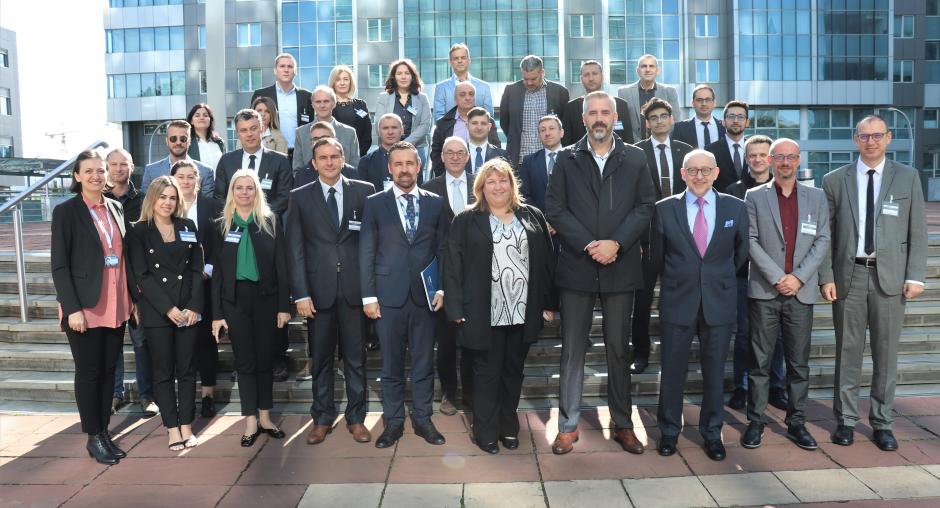Cyber Incident Classification System in focus of OSCE workshop in Banja Luka

The OSCE Mission to Bosnia and Herzegovina supported a “National Cyber Incident Classification” workshop for South-East and Eastern Europe in Banja Luka on 22 and 23 September 2022. The workshop was organized by the OSCE’s Transnational Threats Department (TNTD), in co-operation with the Republika Srpska Ministry of Scientific and Technological Development and the Higher Education and Information Society.
The workshop gathered experts in the cyber/ICT security field from South-East and Eastern Europe, and included policymakers, security officials and ICT experts. Discussions aimed to raise awareness on the importance of national cyber incident classification and enable an exchange of good practices in national cyber incident classification systems across the OSCE area.
Ambassador Tadeusz Chomicki, responsible for Cyber and Tech Affairs at the Ministry of Foreign Affairs of Poland and representing the 2022 OSCE Chairmanship pointed out that “threats to critical infrastructure are often trans-border, therefore, developing and implementing national cybersecurity incident classification systems are an important element for international co-operation, to achieve comparable situational awareness and assessment of how serious the threat is and how many countries it may effect.”
Mr. Jiri Rous, Head of the OSCE Mission to Bosnia and Herzegovina’s Banja Luka Field Office recalled that “it is high time for BiH to operationalize the computer emergency response teams (CERTs) for BiH and FBiH institutions, and to initiate collaborative development of a cybersecurity framework strategy for BiH”.
"Cyber incidents are becoming more frequent and represent a growing threat to security and stability," said Assistant Minister of Security of Bosnia and Herzegovina, Mladen Mrkaja.
"We at the Ministry of Security are working on certain systematic solutions, primarily on the establishment of a computer security incident response team for BiH institutions. The biggest challenge we face is the provision of adequate personnel trained to combat cyber incidents and infrastructure protection. For this reason, it is necessary to make additional efforts to build these capacities", added Mrkaja.
"Due to the increasingly frequent hacker attacks that are occurring, it is necessary to establish a metric system for the classification of cyber incidents in order to adequately respond to these threats," said the Minister for Science and Technology Development, Higher Education and Information Society of Republika Srpska, Srđan Rajčević. "The three basic postulates of cyber security are the availability, integrity and confidentiality of data. When one of those principles is violated, then we have something called a cyber incident, which now occurs on a daily basis," added Minister Rajčević.
